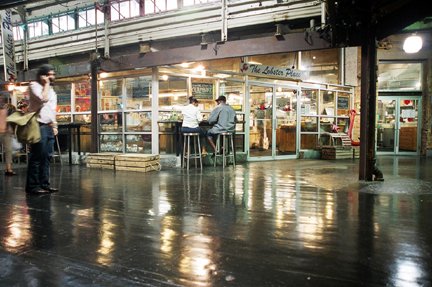A couple of weeks ago I spoke at a conference in the US on adolescent health. One of my fellow speakers spoke with energy and passion about the need for young people to eat a more healthy diet. But it was a very American speech, rooted in an ethos of personal choices and individual responsibility. While noting that our food is laced with fructose and high levels of sugar and fat (oddly, I don’t recall her mentioning salt or lack of dietary fibre) she did not suggest that we should be regulating the food industry that provides this unhealthy diet.
I pointed this out rather firmly, suggesting that we should. Repeating Nancy Milio’s famous phrase, I said we need to make the healthy choice the easy choice. But all too often we make the unhealthy choice easy – and then wonder why people make unhealthy choices. Unsurprisingly, this suggestion was not met with much enthusiasm. Nor was another questioner who wondered how people in low-income communities, faced with ‘food deserts’, could make healthy choices when all they had were corner stores and fast-food restaurants. The speaker suggested they should create community gardens.
I have nothing against community gardens, indeed I welcome them for all sorts of good reasons; at their best they strengthen community relationships, provide exercise, green havens and links to nature, even vegetables and fruit – and they might save some people some money. But I don’t see them as a viable solution for people who live in low-income food deserts.
Instead I suggest another approach: The Healthy Corner Store. This approach was pioneered in 2004 by the Food Trust, a Philadelphia-based non-profit, in partnership with the Philadelphia Department of Public Health. The Food Trust noted that in low-income communities, where supermarkets are often lacking, “families depend on corner stores for food purchases. The choices at these stores are often limited to packaged food and very little, if any, fresh produce.”
So they set out to change that, working with local stores and their communities. The Philadelphia network now involves more than 600 corner stores. A 2014 evaluation of the Philadelphia initiative found that it resulted in “healthier choices, healthier businesses and healthier communities” and the network has now gone national.
This approach is now underway in Canada, with an initiative launched by the Toronto Food Policy Council in 2014 and by the Food Policy Lab and others in Newfoundland in 2015. The Toronto initiative began by mapping areas of the city where there was lack of access to healthy food and where low income populations live.
They selected a pilot convenience store in a high-rise complex in East Scarborough whose owners were keen to sell healthier and more affordable food. Working with the local community, including the youth, they identified local healthy food preferences and worked to strengthen relationships between the community and the store owners. Then they worked with the owners to improve their business planning, including purchasing, marketing and signage.
The product will be a ‘how to’ toolkit they hope to take to some of the other 2,000 convenience stores across the city. The intent is to boost sales and profits in the store, which makes it an attractive option for other stores to adopt, although it is too soon to tell how much this will change people’s diets.
The Newfoundland project is based on the recognition that “Newfoundland and Labrador has the most corner stores per capita, as well as the highest proportion of corner stores in rural areas, of all of the provinces or territories in Canada”, according to the Food First NL website. In rural communities, they note, these stores are also important community hubs, which means these stores can help strengthen community as well as improve healthy food choices. As in Toronto, they have started with a pilot store from which they are learning, but then plan to expand across the province.
Of course, changing our food culture takes a long time, especially in competition with the powerful marketing of fast food and junk food. But this seems like a worthwhile effort that could readily be adopted in BC, both in big cities such as Vancouver and in small, rural communities.
© Trevor Hancock, 2017
Originally published in Times Colonist Feb 27, 2017
Photograph by Claudio Vasquez

 By
By